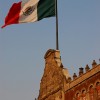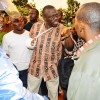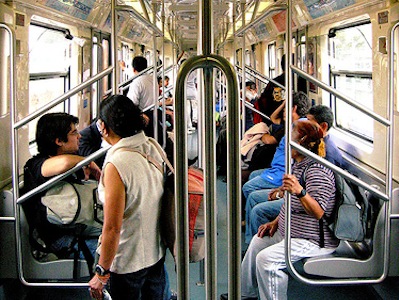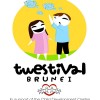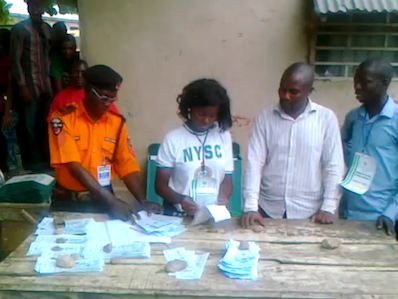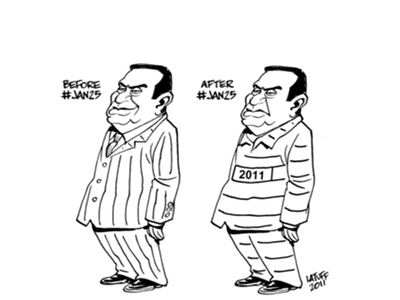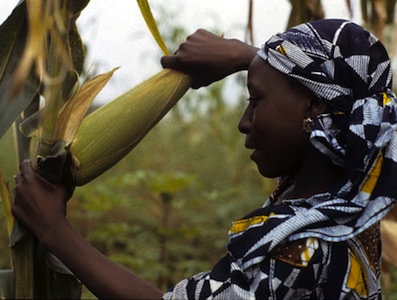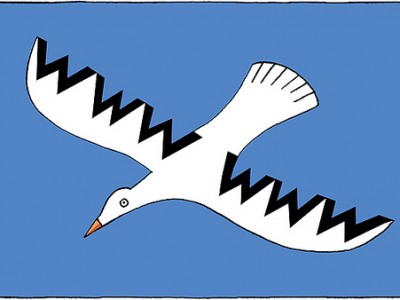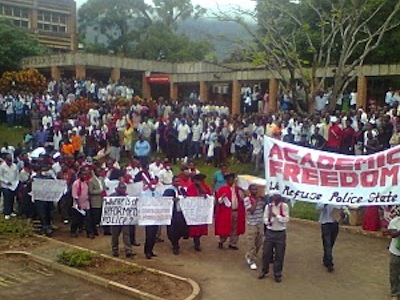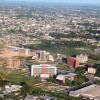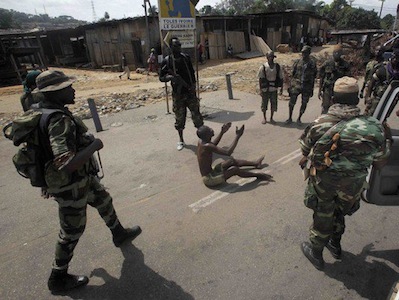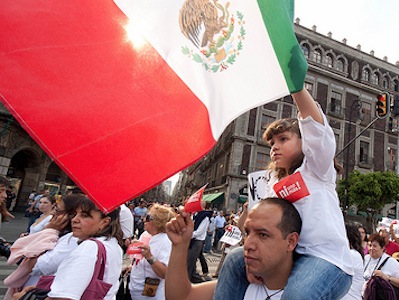Stories about Citizen Media from April, 2011
Bolivia: Sharing a Meal with Aymara Women
Pablo Andrés Rivero [es] blogs about a “collective, ritual meal of the Andean region” he shared with Aymara women in the Palca municipality, close to La Paz. When he was almost done eating, one of the women asked him “What do they eat in your country?” prompting Andrés to reflect...
Mexico: Felipe Calderon's Cabinet on Twitter
In mid-April, the government headed by Felipe Calderon announced with much fanfare that every member of the cabinet was now registered on Twitter, and prepared to deal more directly with the public via social media. The initiative, however, is shadowed by a concurrent report ranking Mexico just 78th out of 133 countries in terms of its effective use of information technology.
Uganda: Government Attempts to Block Facebook, Twitter as Protests Continue
As opposition politicians and others angry over rising fuel and food prices in Uganda continue to stage "walk to work" protests against the current regime, the government is asking Internet service providers (ISPs) to shut down access to Facebook and Twitter.
Mexico: The Reality of Public Transportation in Mexico City
Bloggers in Mexico City narrate their experiences and express their opinions on two of the most popular means of public transportation in that city: the Metro and the Metrobús.
Russia: Bloggers Stop FSB Initiative To Ban Skype
It was just a stroke of luck that on Friday, April 8, 2011, LiveJournal did actually work; before and after this date it would constantly “crash” or “die” due to hacker attacks for periods ranging from several hours to half a day. But on this particular Friday it worked, and it’s possible that this saved the Russian Internet and all its users from yet another prohibitive initiative from the FSB (Federal Security Service). At least for the time being.
Argentina: Judge Recognizes Armenian Genocide
An Argentinean judge issued a historic ruling in which he condemned the Turkish state for committing the crime of genocide against the Armenian population. Argentina received an important stream of Armenian immigrants fleeing the genocide, whose descendants maintain their customs and traditions grouped under distinct institutions that form the Armenian Collective.
Brunei: Twestival Unites Local Netizens
Brunei's first Twestival event gathered the country's leading bloggers and other netizens in support of the Child Development Centre, a group that provides assistance to children with special needs.
Nigeria Votes 2011: Opinions From the Polls
Nigerians voted yesterday in the third presidential election since the nation transitioned to civilian rule in 1999. Thus far, the election has widely been declared a success, with only sporadic reports of violence and voting irregularities. News sources reported a large turnout, orderly queues, and voters waiting until polls closed to make sure their votes were counted. Bloggers discuss the experience.
India: Social Media Powers Anti Corruption Bill Campaign
On April 5, 2011, social activist Anna Hazare started a fast-unto-death campaign to demand an effective anti-corruption law and hundreds of thousands of Indians supported him. Social media helped spread the campaign of Anna Hazare; netizens analyze why the campaign will never tip into a social movement.
South Asia: Reactions On The Burqa Ban In France
The recent ban imposed by France on burqa (niqab), the Islamic face veil, has created a lot of buzz across the different blogosphere of the world. Some South Asian bloggers are discussing this issue.
Nigeria: #PlessYaHand and #NigeriaDecides Trending
Voting in Nigeria’s presidential election has begun. The election was postponed from 9 April, 2011. The main candidates are the incumbent Goodluck Jonathan and Muhamadu Buhari. #PlessYaHand and #NigeriaDecides are currently trending in Nigeria's Twittersphere.
Egypt: Mubarak in Detention
Just a few months ago, many Egyptians might have wished to see the country's then-president Mubarak in jail, yet almost certainly none of them imagined this wish might come true one day. However, on Wednesday April 13, 2011 Egyptians woke up to the news of Mubarak's detention first thing in the morning. Here is how the moment was documented in the Egyptian social media scene.
Is Empowering Women Key to Eradicating Global Hunger?
As global food prices continue to remain high, with potential increases on the horizon because of soaring oil prices and supply concerns, experts says that there is one often-overlooked solution for fighting hunger: women.
Colombia: Netizens Discuss ‘Law Lleras’ on Copyright
"Law Lleras," which punishes those that share or download content from the Internet without paying royalties, has generated controversy among netizens, who have shared their opinions on blogs and social networks.
Malawi: The Power of a Blog Post
The two-month old stand-off between the university lecturers in Malawi and their employer has led to the closure of the University of Malawi's main colleges. But no one would have known that things were so bad if one blogger, Boniface Dulani, had not written a post titled "Mutharika's dictatorship hits a new low: Unima's Blessings Chinsinga summoned by Inspector General of Police" on February 12, 2011.
Gabon: Movement in the Petroleum sector
While the rest of the world searches for alternatives to petrol, it is the basis of almost the entire economy of countries like Gabon. Several months ago the country was rocked by revolts that went widely unreported yet which by the end of January saw the leader of the political opposition declare himself as the new President. The issues are now extending beyond politics and are now impacting Gabon's petroleum sector, which provides 60% of the national revenues.
Gabon: Issues in the Oil industry Sector
On Monday, April 8, oil industry workers returned to work following an announcement made to AFP by Arnauld Engandji, spokes-person for ONEP (the National Organization for Petrol Industry Workers), stating "the demands have been met. We do not want to cause chaos". ONEP, an organisation of between 4000 and 5000 members, went out on strike (fr) to obtain new regulations relating to the employment of foreign workers within the sector, who "they accuse of taking the place of Gabonese workers".
Côte d'Ivoire: Brutality Continues After Gbagbo's Capture
Since their capture on April 11, 2011, pictures of former Côte d'Ivoire President Laurent Gbagbo, his wife, and their entourage have spread on the web and via international newspapers. One picture in particular provoked a strong reaction: an image of Simone Gbagbo being humiliated by her captors.
Mexico: Netizens Deploy the “Failed State” Meme
The idea of Mexico as an actual or potential "failed state," pending since its introduction into public discourse in 2008 following news of a report to this effect by the U.S. Joint Forces, has become a popular meme in its own right on the Internet, as bloggers and other netizens deploy the parlance (signaled on Twitter by the ubiquitous hashtag #estadofallido) for their own critical purposes.
Swaziland: Protest Leaders, Journalists Arrested
Activists in Swaziland took to the streets of Manzini on Tuesday and Wednesday demanding political reform and calling on King Mswati III, Africa's last absolute monarch, to return power to the people.
Japan: Quakebook, a book born on Twitter
Journalist and blogger Jake Adelstein presents Quakebook [en], “a compilation of art, stories, and essays to raise money for Japan earthquake survivors” which started with a single tweet. The book, officially titled 2:46: Aftershocks: Stories from the Japan Earthquake, was co-written by popular writers and artists and 100% of revenue...

